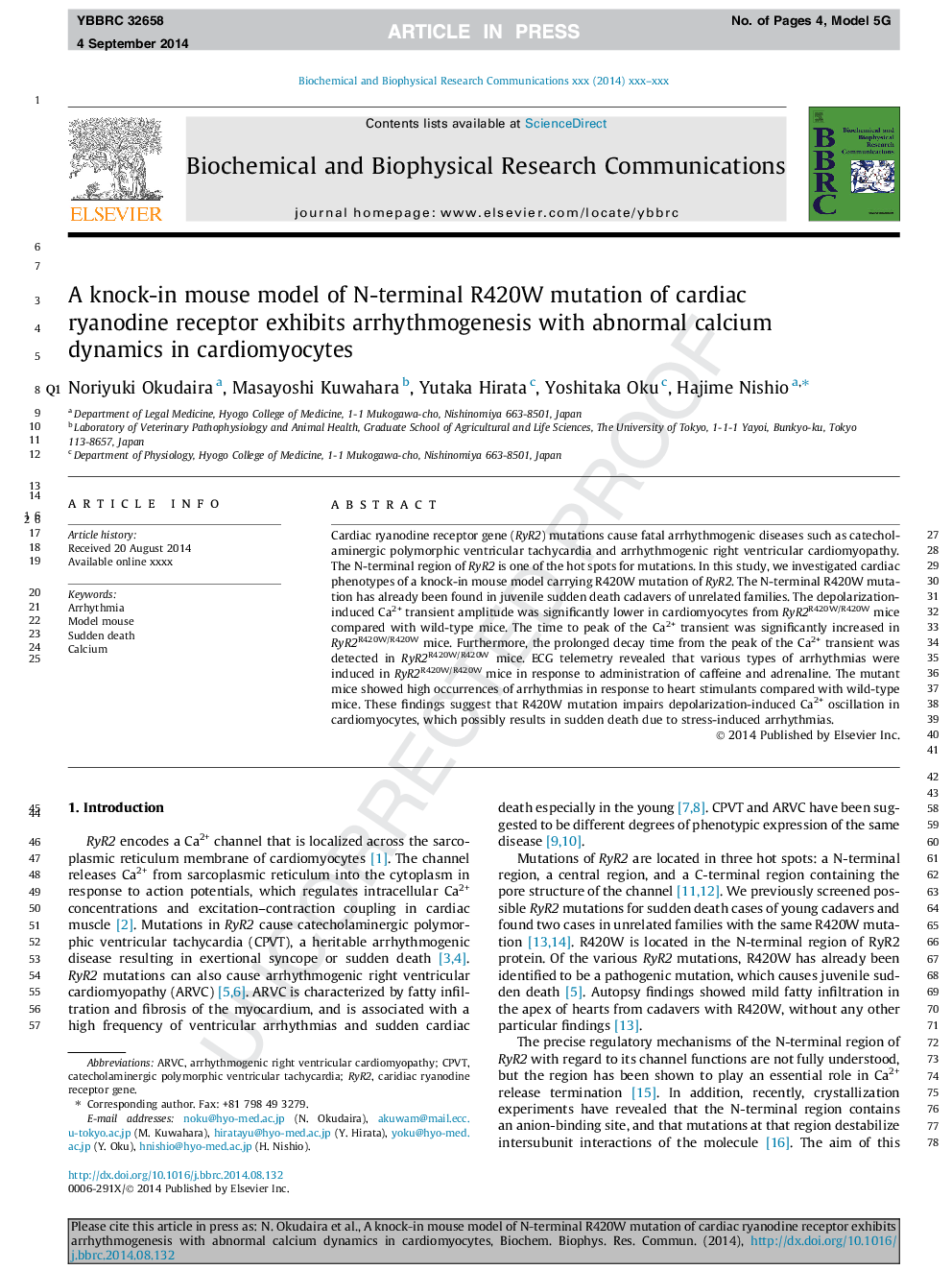| Article ID | Journal | Published Year | Pages | File Type |
|---|---|---|---|---|
| 10753836 | Biochemical and Biophysical Research Communications | 2014 | 4 Pages |
Abstract
Cardiac ryanodine receptor gene (RyR2) mutations cause fatal arrhythmogenic diseases such as catecholaminergic polymorphic ventricular tachycardia and arrhythmogenic right ventricular cardiomyopathy. The N-terminal region of RyR2 is one of the hot spots for mutations. In this study, we investigated cardiac phenotypes of a knock-in mouse model carrying R420W mutation of RyR2. The N-terminal R420W mutation has already been found in juvenile sudden death cadavers of unrelated families. The depolarization-induced Ca2+ transient amplitude was significantly lower in cardiomyocytes from RyR2R420W/R420W mice compared with wild-type mice. The time to peak of the Ca2+ transient was significantly increased in RyR2R420W/R420W mice. Furthermore, the prolonged decay time from the peak of the Ca2+ transient was detected in RyR2R420W/R420W mice. ECG telemetry revealed that various types of arrhythmias were induced in RyR2R420W/R420W mice in response to administration of caffeine and adrenaline. The mutant mice showed high occurrences of arrhythmias in response to heart stimulants compared with wild-type mice. These findings suggest that R420W mutation impairs depolarization-induced Ca2+ oscillation in cardiomyocytes, which possibly results in sudden death due to stress-induced arrhythmias.
Keywords
Related Topics
Life Sciences
Biochemistry, Genetics and Molecular Biology
Biochemistry
Authors
Noriyuki Okudaira, Masayoshi Kuwahara, Yutaka Hirata, Yoshitaka Oku, Hajime Nishio,
